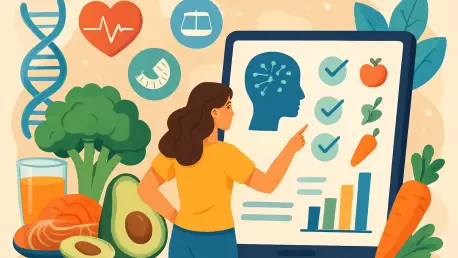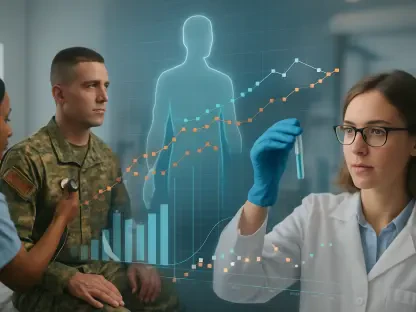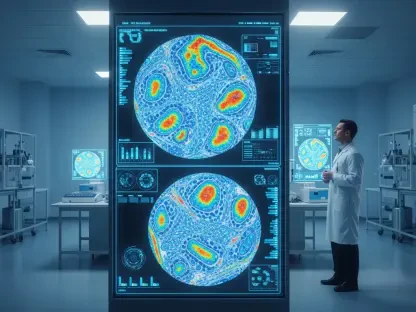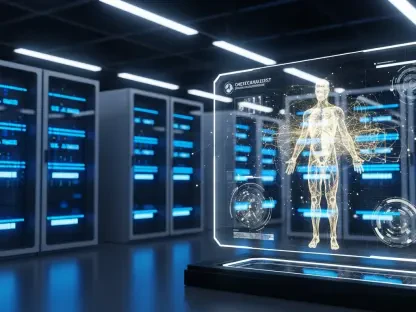What if a technology could scan your lifestyle, preferences, and health needs to craft a perfect meal plan just for you? In a world where obesity rates have soared—with over 1.9 billion adults classified as overweight globally by the World Health Organization—the struggle to eat healthily feels more daunting than ever, and the promise of artificial intelligence (AI) in nutrition offers a glimmer of hope, personalizing dietary habits in ways traditional methods have long failed to achieve. This cutting-edge approach might just redefine how society tackles the epidemic of lifestyle diseases.
Why Healthy Eating Remains an Elusive Goal
Despite widespread access to nutritional knowledge, maintaining a balanced diet proves challenging for millions. The basics of eating well—consuming vegetables, limiting processed foods, and balancing macronutrients—are no secret, yet consistency escapes many. Factors like stress, lack of time, and the allure of convenient, unhealthy options often derail good intentions, leaving individuals stuck in cycles of poor choices.
The consequences are stark, as lifestyle-related conditions such as diabetes and heart disease continue to rise. Statistics paint a grim picture: the Centers for Disease Control and Prevention report that over 34 million Americans live with diabetes, a condition often linked to dietary habits. This global health crisis underscores a critical gap between awareness and action, raising the question of whether technology like AI could bridge it by tailoring solutions to individual lives.
The Urgent Demand for Customized Nutrition
In today’s fast-paced environment, barriers to healthy eating multiply. Busy schedules leave little room for meal preparation, while tight budgets push many toward cheaper, calorie-dense foods that lack nutritional value. Cultural and personal food preferences further complicate the adoption of generic diet plans, often making them feel restrictive or irrelevant to daily life.
These challenges directly contribute to the alarming surge in chronic illnesses tied to poor diets. Public health experts warn that without intervention, the burden of conditions like obesity will only grow, straining healthcare systems worldwide. AI emerges as a potential ally here, with the ability to analyze personal data and design nutrition plans that respect time constraints, financial limits, and unique tastes, aligning individual wellness with broader health objectives.
AI’s Edge Over Traditional Diet Planning
Conventional dietary approaches, often relying on static guidelines or one-size-fits-all templates, struggle to accommodate the diversity of human needs. Methods like manual meal planning or basic filtering systems fail to adapt to complex constraints such as allergies or cultural dietary norms. This rigidity limits their effectiveness, leaving many users frustrated with plans that don’t fit their reality.
In contrast, AI-driven systems, such as the AI-based Nutritional Recommendation (AINR) system, leverage machine learning to offer a more dynamic solution. Focused on Mediterranean cuisine, AINR operates through a four-step process: filtering meals by seasonality and local flavors, excluding incompatible options based on allergies or preferences, scoring daily plans against nutritional targets, and assembling varied weekly menus. Studies reveal impressive results, with 100% accuracy in filtering meals for user needs, though only 90% of simulated profiles received viable plans due to database gaps, highlighting both potential and areas for refinement.
Expert Insights and Real-World Impact
Research into AI’s role in nutrition provides compelling evidence of its transformative power. A recent study on the AINR system found a 98% adherence rate to calorie goals among Spanish user profiles, showcasing precision in meeting dietary targets. However, challenges persist for specific groups, such as Spanish users with milk allergies, where 0% received feasible plans due to limited breakfast alternatives in the database, signaling a need for broader food options.
Nutrition experts echo optimism about AI’s capabilities while stressing the importance of human oversight. They argue that while algorithms can crunch data and suggest meals, validation by dietitians ensures safety and practicality. Consider a hypothetical user, Maria, a working mother with nut allergies, who finds AI-generated plans helpful but incomplete without expert input to adjust for her family’s needs—a reminder that technology and human expertise must collaborate.
Making AI Work for Everyday Diets
Adopting AI tools for personalized nutrition involves practical steps accessible to individuals and health professionals alike. Users can start by inputting detailed data—from food preferences to health goals—into systems like AINR, then review the generated weekly plans for balance and variety. Consulting a nutritionist to fine-tune these suggestions adds a layer of assurance, ensuring the plans meet real-world needs.
Addressing current limitations requires collective effort, such as pushing for expanded food databases to include more allergy-friendly or culturally specific dishes. Combining AI recommendations with local, seasonal ingredients can also enhance affordability and relevance. For instance, sourcing fresh produce from nearby markets not only cuts costs but also aligns meals with regional traditions, making healthy eating a sustainable habit.
Reflecting on AI’s Journey in Nutrition
Looking back, the exploration of AI in crafting personalized meal plans revealed a landscape of immense promise tempered by tangible hurdles. The precision of systems like AINR in tailoring diets to individual needs stood out as a breakthrough, offering hope to those who had long grappled with generic solutions. Yet, the gaps in data and the necessity of human validation reminded everyone that technology was a tool, not a cure-all.
Moving forward, the path seemed clear: expanding databases to encompass diverse dietary needs and integrating expert input could elevate AI’s impact. Real-world testing, already underway since 2025, promised deeper insights into practical applications. The vision of a future where tailored nutrition became accessible to all grew stronger, driven by the belief that small, actionable steps today could reshape health outcomes tomorrow.









